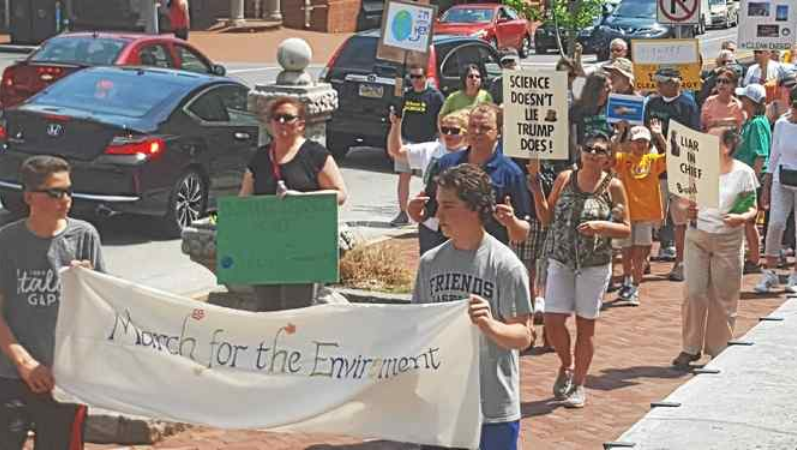By Nathaniel Smith

Perhaps environmentalists have had too much faith in the power of government in advancing our goals. The federal government created national parks, put the EPA to work to protect air and water, has at times protected endangered species, and much more.
But now, with a federal government actively promoting fossil fuels and opposed to even the most reasonable measures against pollution and climate change, we are thrown onto our own resources.
States can do a lot. At least 20 of them (not so far including PA) have pledged to support the Paris Climate Accord; and hundreds of cities have signed on. Sierra Club's Ready for 100 effort is getting a lot of municipalities to commit to using renewables.
In the gas pipeline controversy, the affected municipalities and their representatives in Harrisburg have been very outspoken. This is not a partisan matter, when people's homes, schools, and public buildings are threatened. The stakes are air and water quality, human health, and property values; public officials are on notice that their constituents are watching. Many of this year's candidates for PA House and Senate have been active in the effort to discipline the pipeline industry.
The group I have been most involved in is Don't Spray Me!, which formed in 2015 as a response to excessive and unnecessary pesticide spraying to supposedly reduce the threat from mosquitoes. Last year Don't Spray Me! started enlarging its scope to include other chemical threats to environmental and human health. Our plan is to spread our message outward from the West Chester area, and ultimately to include the whole county—particularly appropriate since the County Department of Health has been our chief interlocutor on the mosquito front.
It seems to me that counties are the most natural line of defense we have, because they are large enough to carry weight and have serious budgets, but are not so large that citizens can't be heard. Chester County, for example, has half a million residents, a significant bloc when we realize that 6 entire states and the District of Columbia have under a million (though, sad to say, DC has no voting representative in Congress).
A newspaper can cover events throughout the county, we can go in and address our commissioners, and the county depends on our taxes. Counties' sense of community will be enhanced by the new PA congressional districts, which respect county borders as much as feasible. Chesco, with 5/7 of the population of a congressional district, will gain in clout from lying entirely in the 6th (and Delco similarly in the new 5th).
At the county level our organizational goal is to bring together as many pro-environment and pro-community groups as possible to lay out a common strategy, starting with an Earth Day celebration on April 22 in the county seat, West Chester, that we hope will be far larger even than the 200 we drew last year for a rally and march.
The underlying principle is that we should not fixate on the malfeasance of the federal government. National groups should of course be resisting at that level, but the rest of us can do a lot in our municipalities and counties, and when the state fails in its duty, as at present over pipelines, we must constantly remind it of the words of the PA constitution:
“The people have a right to clean air, pure water, and to the preservation of the natural, scenic,historic and esthetic values of the environment. Pennsylvania's public natural resources are the common property of all the people, including generations yet to come. As trustee of these resources, the Commonwealth shall conserve and maintain them for the benefit of all the people.”